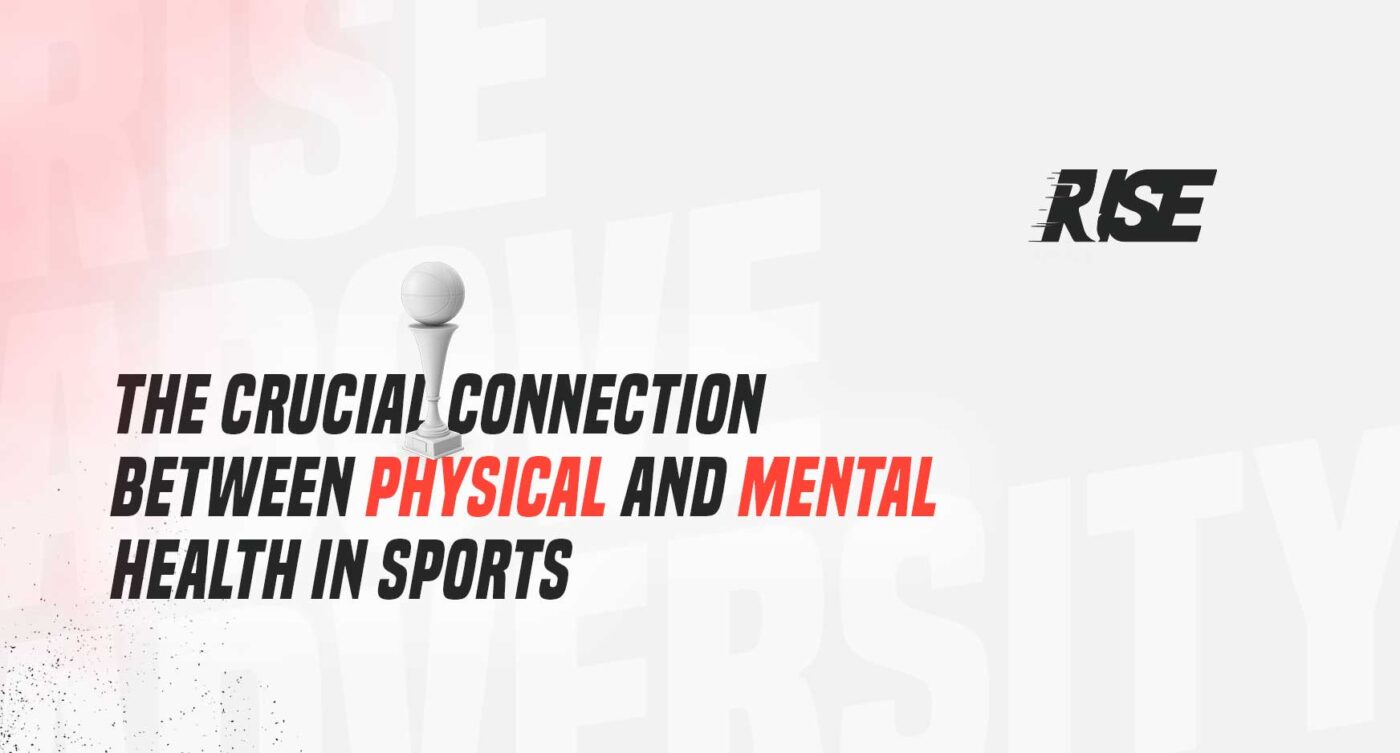The world of sports is often associated with physical strength, agility, and endurance. However, mental strength plays just as critical a role as physical fitness in the success of an athlete. According to the World Health Organisation, mental health is defined by your emotional, psychological, and social well-being, and it is essential for an athlete’s overall well-being, as well as for their performance in their respective sports.
Nonetheless, as sports bring a massive amount of pressure and competition, it is often overlooked that mental health is just as important to athletes as physical fitness. In fact, a healthy mind and a well-planned mindset are just as important as the physical fitness of an athlete for a successful athletic career.
“I say put mental health first because if you don’t you’re not going to enjoy your sport and you’re not going to succeed as much as you want to.” – Simone Biles
Here are five practices to better your mental health in sports::
- Practice Mindfulness
Mindfulness is a meditation practice that involves focusing on the present moment and cultivating an awareness of one’s thoughts and feelings, without judgment. In sports, mindfulness can help athletes remain focused and less distracted by anxieties or fears of failure. Practicing mindfulness allows athletes to train their minds to stay in the present moment, increases their ability to concentrate and focus, and reduces emotional reactivity. Consistent practice of mindfulness, whether through meditation or other activities, helps reinforce this mindset and can help athletes learn to cope with stress and anxiety.
- Set Short-Term Goals
Setting and achieving goals is a fundamental aspect of success in sports, but it is crucial to set both long and short-term goals. Although lofty goals can serve as motivation, setting just long-term goals can lead to frustration and feelings of inadequacy. All goals should be specific, measurable, achievable, relevant, and time-bound. Setting goals in this way will help in building a growth mindset and working towards incremental improvements. Moreover, it is also crucial to remind oneself that progress is not always linear and may not happen as quickly as desired. Patience and perseverance are critical components of goal attainment.
- Develop Positive Self-Talk
An athlete’s internal monologue can have a profound impact on their mental health. Negative self-talk can lead to feelings of inadequacy, anxiety, and self-doubt. Positive self-talk involves intentionally talking positively to oneself, focusing on strengths and learning opportunities. Encouraging affirmations or motivational quotes can play an important role in developing positive self-talk and reinforcing self-belief. Regular reinforcement of positive self-talk helps athletes stay focused and motivated, even when obstacles arise.
- Build a Support System
Building a support system is imperative for athletes to maintain mental health. This support system may include family, friends, coaches, teammates, or mental health professionals. Engaging in open communication with individuals who understand the pressures and expectations of athletics, proves beneficial for athletes. Athletes who maintain strong social connections can reduce stress and feelings of loneliness and build self-esteem and resilience. In addition to building new relationships, it is also essential to maintain existing relationships and prioritize self-care.
- Prioritize Recovery and Rest
Athletes face grueling and often physically demanding schedules which can take a toll on mental health. In addition to physical rest and recovery, prioritizing mental rest and recovery is equally important. It’s vital to identify activities that bring joy and incorporate them into regular routines. Listening to music, reading, meditation, or engaging in a hobby are some examples of activities that may help reduce stress and fatigue. Adequate sleep, nutrition, and hydration also play a critical role in physical and mental recovery.
Like anything, great mental health and mental well-being are sustained through practice. In the same manner that you can’t go to the gym and lose 20kgs in 2 hours, mental health and well-being get stronger and better over time, practice, and repetition. Considering poor mental health is predicted to be the biggest killer of the human race by the year 2030, it is almost a no-brainer that mental health practices should be a regular day-to-day practice.
“It’s far more important to expend energy on self-care and getting healthy than expend that same energy on trying to fake it.” – Schuyler Debree
With the evolution of social media and the rise in the number of acquaintances, we have have these days, it is no secret that Today’s elite athletes are under the spotlight more than ever. That spotlight also comes with a whole lot of judgement and unwarranted criticism and attacks on one’s character. This is why it is crucial to practice and develop your mental health as an athlete. But it isn’t just to keep you from another statistic. In fact, there are a whole lot of benefits you will gain from mental health practices, both in and out of the sports arena. Here are 5 benefits of developing mental resilience as an athlete:
- Reduced Stress and Anxiety
Athletes encounter immense pressure, anxiety, and stress. Regular practice of mindfulness, positive self-talk, and prioritizing recovery and rest can help reduce anxiety and stress levels. By reducing the anxieties surrounding performance and competitions, athletes feel more relaxed and confident, ultimately enhancing performance on the field.
“The goal is to be physically loose and mentally tight.” – Arthur Ashe
- Improved Performance
Mental health and athletic performance are closely connected. Preparing both physically and mentally helps athletes perform better in competition. Metabolic and cardiovascular functions heavily rely on an athlete’s mental state. The better the mental state, the better the physical performance.
- Enhanced Motivation
Regular reinforcement of positive self-talk and mindfulness helps keep athletes’ motivation levels high. A robust support system further contributes to sustained motivation levels. Athletes with high motivation levels can drive themselves in the field and achieve great results.
- Improved Mental Health
Working towards a well-planned mindset and undertaking actions that improve mental health directly impacts an athlete’s overall mental health positively. Sports can come with pressure and competition, and by prioritizing mental health, athletes can build resilience and effectively cope with stress, anxiety and improve their mental health.
- Increased Confidence
Confidence plays a significant role in competitive sports, and so does self-belief. Improved mental health and self-belief help build confidence in athletes. Practicing mindfulness, positive self-talk, and setting realistic goals can help athletes progress and build confidence. The higher the confidence, the better the athlete’s performance.
“Don’t let anyone make you fall out of love with whatever sport you’re passionate about or whatever you’re doing in life.” – Lindsay Horan
Mental health plays a significant role in enhancing athletic performance. By developing, practicing, and constantly improving your mental skillset athletes can further their resilience and mental fortitude.
Consequently, this helps athletes in all aspects of their life. As mental health continues to gain recognition, proper care of mental health will prove vital to the well-being of athletes and their success within their respective sports. Building a mental skillset and improving upon mental health doesn’t just become an added bonus to your athletic career but a necessity for everyday life.
– 𝒞ℴ𝒶𝒸𝒽 𝒞𝒶𝓁.

